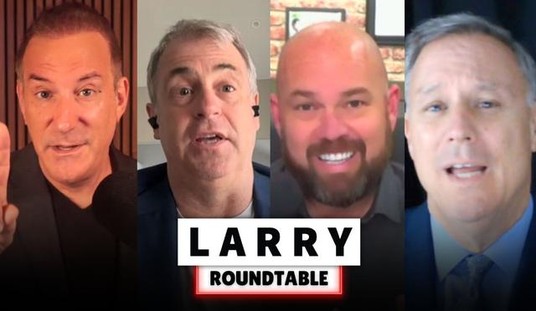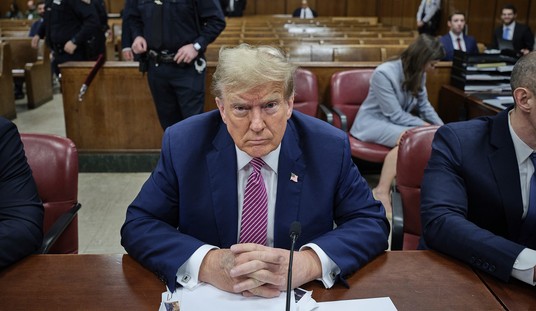Despite numerous promises from congressional Democrats and President Barack Obama when they passed the Affordable Care Act in 2010, the health care law has created far more problems than it has solved. Premiums, deductibles, and health care choices have all worsened since Obamacare went into effect, and there’s no sign America’s health insurance system will improve anytime in the near future.
President Trump inherited a health insurance crisis when he took office in January 2017, so he and congressional Republican leaders immediately began to work to implement their plan to replace Obamacare with a more market-centered approach to improving the nation’s health insurance system. That plan failed miserably, and ever since, the Trump administration has steadily been working—often quietly—to gut Obamacare of its most burdensome provisions, providing millions of Americans with financial relief and alternative ways to purchase affordable health insurance and putting Obamacare on a path toward complete collapse.
For example, in December 2017, at the request of the Trump administration and some conservatives in Congress, Republicans included in the Tax Cuts and Jobs Act a provision reducing the Obamacare penalty for not purchasing “qualifying” health insurance to $0, beginning in January 2019. This move was particularly important for working-class families because IRS tax data show of the 6.6 million filers required to pay the Obamacare penalty in 2015, the most recent year for which data are available, 36 percent had an adjusted gross income of $10,000 to $25,000. That means Republicans’ decision to lower the penalty to $0 will save millions of working-class people from having to pay fees they likely can’t afford.
Recommended
Effectively eliminating the Obamacare penalty will provide great financial relief to millions of people, but it won’t help Americans gain access to lower-priced health insurance policies. Thankfully, the Trump administration has implemented other reforms to accomplish that goal.
For instance, in June, with the support of Sen. Rand Paul (R-Ky.), the Trump administration’s Department of Labor finalized a rule permitting sole proprietors, employees of small businesses, and small business owners with a “commonality of interest”—such as living in the same state or working in the same industry—to join together to purchase association health plans. AHPs allow thousands of people to buy insurance as a large group and across state lines, dramatically increasing health insurance options. These plans also lower costs for those in an association because they can negotiate prices as a group in the same way large employers can. Further, these plans don’t allow people to be denied coverage or forced to pay higher prices because of a preexisting condition, protecting those with health problems from the possibility of losing coverage or having to pay significantly more than other members of an association.
Additionally, earlier in August, the Trump administration changed federal rules governing the length of short-term health insurance plans, increasing their maximum period from three months to 12 months and allowing these plans to be renewed for up to 36 months. Short-term plans are great options for many young Americans and healthy adults who don’t receive coverage through a parent or employer and don’t have enough money to purchase an expensive Obamacare plan. Short-term plans often cost much less than $200 per month, more than half of what many mid-level Obamacare insurance plans cost. The reason they are cheaper is because they are exempt from many of the Affordable Care Act’s costliest mandates, including “essential health benefits” like alcohol and substance abuse coverage and maternity care, and because insurance companies can choose not to renew the plan once its period expires.
For those who don’t need many health care services—and there are millions of younger Americans who don’t—short-term plans, especially when coupled with a direct primary care agreement, can be very helpful ways to ensure one has “catastrophic” health coverage without going broke. And although it’s true a person with a short-term plan who develops a serious illness like cancer would be at risk of losing coverage when the agreed upon insurance period ends, he or she need not worry, because the plans sold through Obamacare exchanges guarantee a person cannot be denied coverage because of a preexisting condition, and a person enrolled in a short-term plan can enroll in an Obamacare exchange plan during any open-enrollment period or, if certain conditions are met, outside of the open-enrollment window.
One of the biggest criticisms of these moves, which will unquestionably help millions of people obtain cheaper health insurance, is that they undermine Obamacare and put at risk the entire Obamacare system. Critics argue that these plans draw healthier people out of the exchanges, making plans more expensive for those who choose to remain in the exchanges or are stuck there because of an expensive medical condition.
On this point, there is absolutely no doubt that critics are correct. The Trump administration’s policies will likely help to kill Obamacare by making it much more expensive for insurers still operating in the exchanges. CBO projects by 2023 about 6 million Americans will choose to purchase either an association health plan or a short-term health insurance plan, and a sizeable portion of those people likely already have health insurance now.
What critics fail to acknowledge, however, is that Obamacare is a total disaster that’s in the midst of a death spiral. Politicians and pundits that want to save Obamacare are comparable to mechanics calling for repairs of the Titanic immediately after it struck a massive iceberg; the ship is going to sink no matter how difficult it might for President Obama’s sycophants to admit. The only course of action now is to start getting as many people of the boat as possible—not to apply small patches to a vessel destined to sink.
Saving people from the Obamacare nightmare is exactly what President Trump is trying to do. These aren’t perfect solutions, of course, but perfect solutions are rarely available in the midst of a crisis. So, until Congress gets its act together and replaces Obamacare, Trump’s efforts are the only hope many Americans have of being able to purchase affordable health insurance.

























Join the conversation as a VIP Member